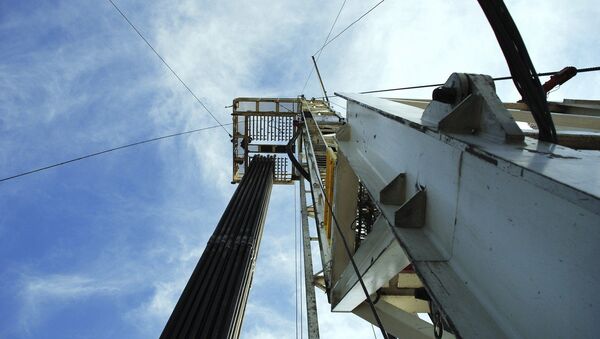Chris Faulkner, CEO of the Texas-based Breitling Energy Corporation, who is in the UK delivering a presentation on the state of the energy industry, urged Prime Minister David Cameron to secure the country's energy future by fracking the country's purported resources.
"With a decisive victory under his belt, David Cameron should ignore the falsehoods and exaggerated risks promoted by misleading environmentalists and do what is right for the country's future."
Despite widespread concern about the environmental and social impacts of fracking, Faulkner said that the UK would benefit greatly by tapping its energy resources, which would make it less dependent on imports.
"What's key here is that the UK can gain independence from foreign oil and gas by developing these potentially massive resources under its own soil," he said.
Citing a report undertaken by University of Manchester researchers, which stated that the UK could potentially have as much as 470 years worth of natural gas supply from shale underneath the surface, Faulkner says the UK could create decades worth of "self-reliance" on its own energy supply.
"It will take bold leadership on the Prime Minister's part to stand up to these people who falsely believe this great country can fuel itself with just windmills and solar panels."
However, there has been serious debate about how much of the UK's purported natural shale supply can actually be extracted, with data from the US suggesting that on average, only six percent of shale gas and oil can be.
Environmental Concerns
Despite Faulkner's keenness to develop the shale gas industry in the UK, there have been widespread concerns about the potential impacts that such practices would have in Britain.
Environmental concerns have been based around fears that fracking can cause underground instability that can ultimately lead to earth tremors or quakes.
MYTH BUSTING! #Fracking is not a pathway to UK energy security: http://t.co/GJ35wYPz0l pic.twitter.com/JOM9bEvsX8
— Frack Off (@Frack_Off) May 12, 2015
The UK government placed a moratorium on fracking in 2011 after drilling operations in Blackpool were found to have been the 'most likely' cause of small earthquakes in the area.
The fears of seismic activity have also been compounded by suggestions that the practice of fracking could release harmful chemicals into underground water supplies.
Environmental action group Frack-Off has long-been an opponent of developing shale resources in Britain, citing reports in the US and Australia detailing the health impacts on local residents in areas of fracking activity.
@David_Cameron @Ed_Miliband @nick_clegg THINK FRACKING THE UK IS OKAY. WE WONDER WHY #FrackOff & leave planet alone pic.twitter.com/euv5pum7fk
— No Fracking Way (@AntiFrackingSCO) May 3, 2015
"Each well produces huge volumes of harmful, toxic waste, severe air pollution and poses a long-term threat to groundwater. Regardless of what the industry or government would have us believe, fracking is scraping the bottom of the fossil fuel barrel. This is an act of desperation," a spokesperson said.
"It's expensive, it's short term, and it's dirty."



